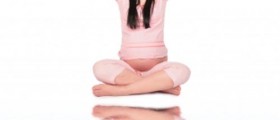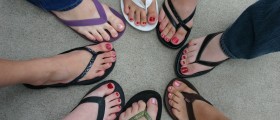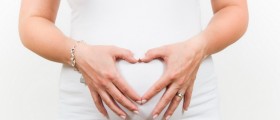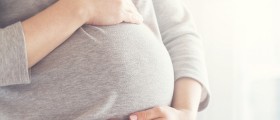One of the changes that occur during pregnancy is water retention. It makes a woman feel swollen, bloated and heavy. This happens partially because the female body produces up to 50 percent more fluids and blood to allow favorable growing conditions for the baby. However, the bloating and swelling are not limited only to the abdominal region and they are also present on the face, neck, hands, feet and ankles.
Causes of water retention in pregnancy
Water retention and bloating are mostly observed in the second and third trimester of pregnancy. It mostly happens because of all the hormonal changes that the female body goes through during pregnancy. Because of water retention or edema the fluids become trapped beneath the skin and between the tissues and cells, and as the gravity pulls them down, they accumulate mostly on feet and ankles.
Water retention is often aggravated by other factors, such as hot and humid weather. Those conditions can trigger water retention in everyone, but in pregnant women it is even more pronounced. Inadequate water intake, lack of exercise and sedentary lifestyle are other factors that may lead to this problem.
While some swelling of the body is normal in pregnancy, sudden and intense swelling may be a cause for concern, because it could indicate a condition called pre-eclampsia, which results from high blood pressure and can be dangerous for both the mother and the baby.
Preventing water retention in pregnancy
Certain degree of water retention during pregnancy often cannot be prevented, but it certainly can be alleviated. Drinking plenty of fluids may seem like a strange solution for this problem, but it is in fact not only important but also essential.
It is also important to try to increase physical activity. Pregnant women should not strain much and they certainly should not work out too intensively, but moderate activities like walking, light jogging, swimming, yoga, dancing and similar are greatly encouraged.
As for the food, it should be low in sodium and rich in potassium. This will have a direct impact on water retention. It is also important to eat foods rich in dietary fiber.
Clothes should be light and loose, not stretchy or tight. The same goes for shoes. They should be comfortable, with a low heel but not flat.
Lifting the feet up whenever it is possible is an efficient way to reduce swelling. Staying in the same position for extended periods of time is not good and it is recommended to take a pause as often as possible if the job requires lots of standing or sitting.

















Your thoughts on this
Loading...